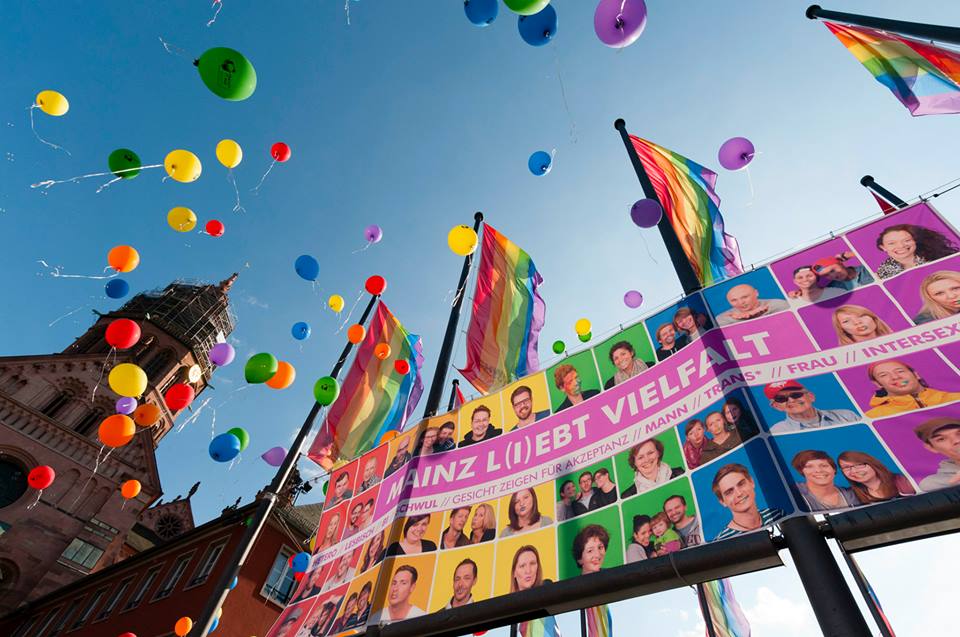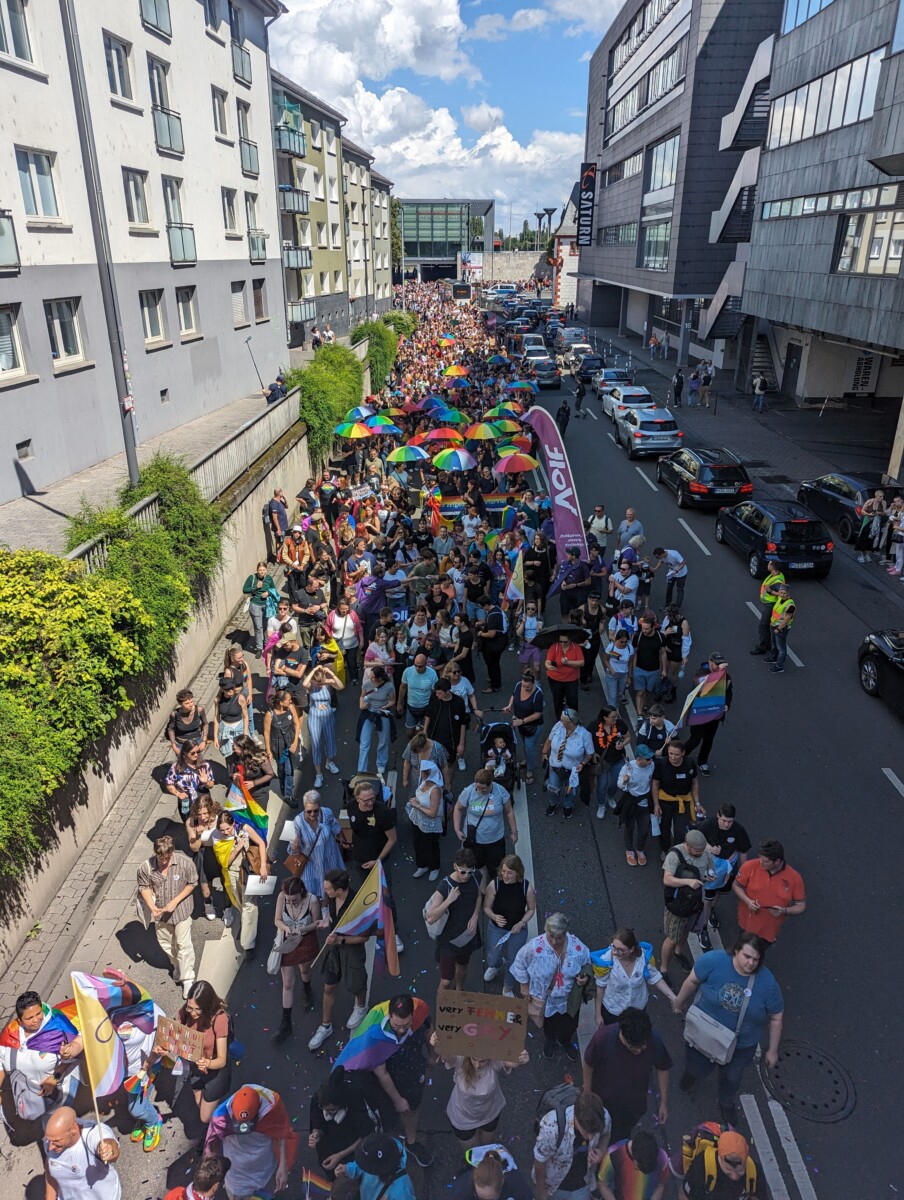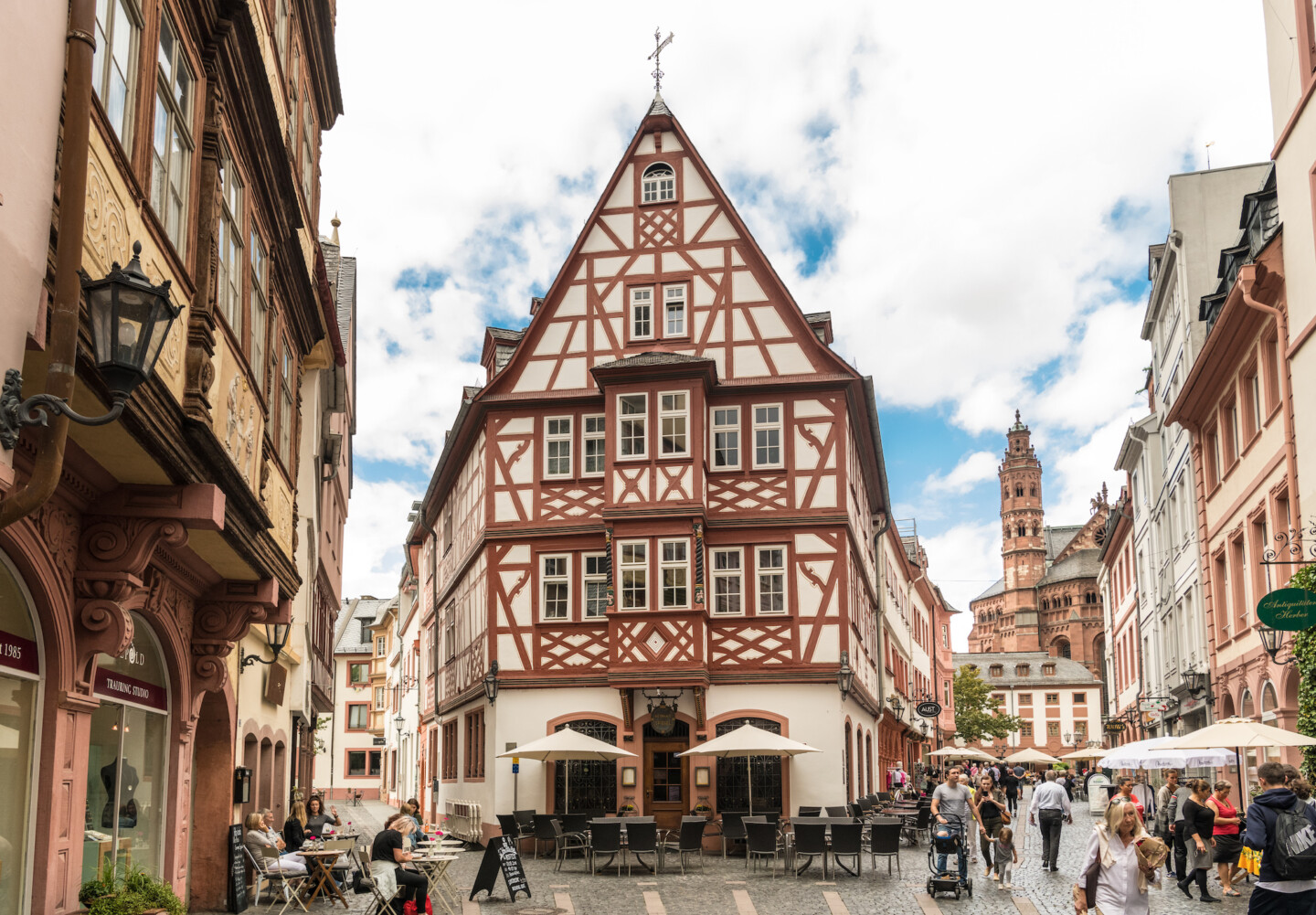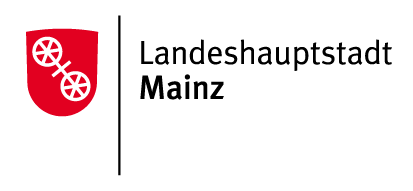Mainz

Description of the city
Mainz is the Capital City of Rhineland-Palatinate. With more than 225,000 inhabitants the city is located centrally on the Rhine river, in the vibrant Rhine Main Area. The city is surrounded by famous vineyards, the reason why it is named Germany´s Great Wine Capital. Mainz offers a big city but sociability without the bustle. With a romantic old town, interesting relicts of a great history and very open minded people. Mainz as home of universities and research institutes has an exciting mix that creates the unique “mainzvibe” which you get to know exploring the colourful weekly market in front of the cathedral.
Policy
The tasks of the Coordination Office for LGBTIQ Equality of the City of Mainz are divided into five fields of action: specialist policy work, support for the LGBTIQ community, support for the city departments and offices, implementation of measures to promote acceptance and advice.
Goal
In accordance with the General Equal Treatment Act (AGG) of the Federal Republic of Germany, the City of Mainz is committed to the equal treatment and equality of people with different sexual identities and same-sex lifestyles.
Focus Areas
Continuation of the working group “Hate crime against LGBTIQ people and women” of the Municipal Preventive Council of the City of Mainz
Problems faced by queer young people and the associated prospects for queer youth association work
Deepening the topic of LGBTIQ and living in old age as well as quality certification of outpatient and inpatient services. An application has been submitted by the Seniors’ Advisory Council.
Implementation of further research projects on LGBTIQ history in Mainz after 1946 in cooperation with the city archives.
Creation of leaflets following the erection of a stele to commemorate the victims of National Socialism and the post-war period with an LGBTIQ background.


Collobaration partners
There are frequent contacts with the House of Remembrance on the culture of remembrance and with Wohnbau Mainz on issues relating to the accommodation of LGBTIQ refugees. In addition, there are also contacts with all societies close to the city and networking strategies with associations and initiatives outside the actual LGBTIQ area.
- Partner
Publications and other materials
References to publications and material can be found on our homepage. You will find the link in the box above.
